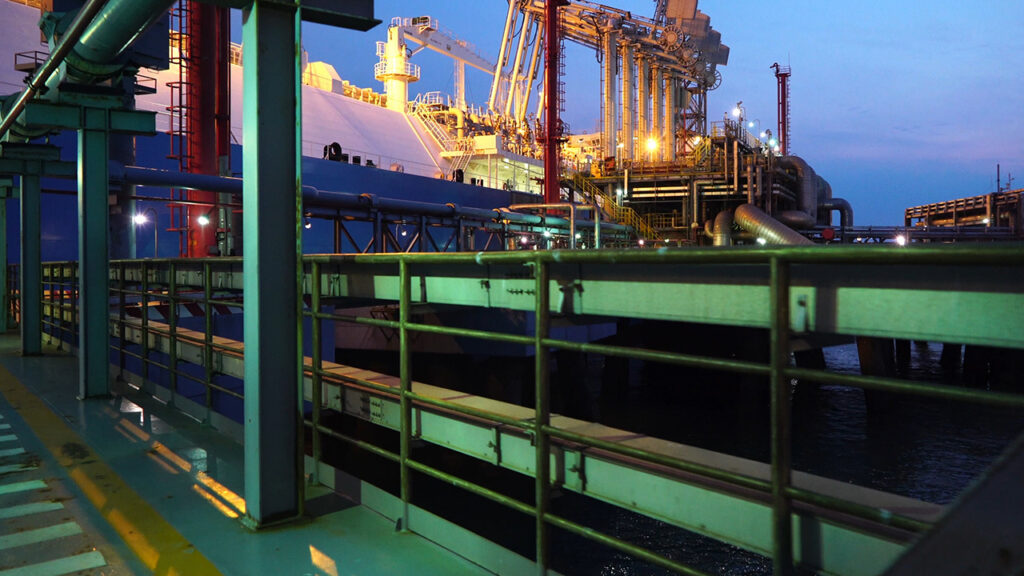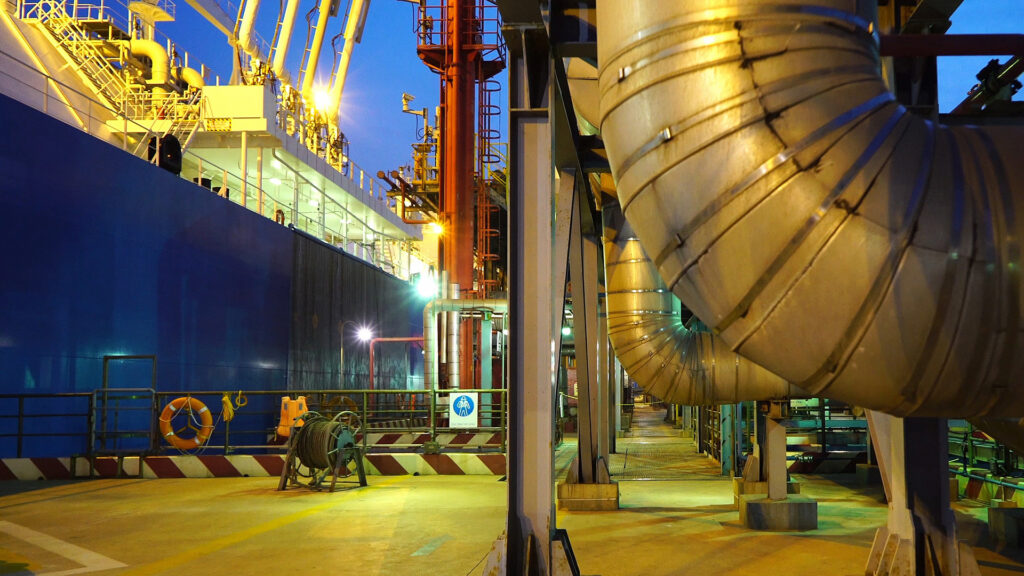Putting on weight
This article first appeared in the December 2012 issue of Port Strategy and is reproduced with their kind permission. www.portstrategy.com.
Inaccurate container weight declarations continue to create safety and operational issues, putting vessels, other cargo, crew and terminal facilities at risk.
In their December 2011 Financial Review, transport and logistics insurer TT Club, who insure in excess of 80% of all maritime containers, reported having received 357 accident claims resulting from bad container stowage and handling in the last six years, accounting for 35% of total claims and costing $12.8 million.
With vessels growing in size and the current economic climate pushing the industry to be as efficient as possible, the issue of container weighing has become increasingly significant.
The technology for weighing containers does exist, and need not create undue cost or impair the efficient running of ports: the US has implemented the mandatory weighing of export containers for years without these issues.
One method of weighing containers would be using the spreader (the device used for lifting containers). According to industry experts, this would return a 99% accurate weight reading without the need for an additional operational step.
As industry self-help efforts have failed to solve the ongoing problem of mis-declaration, interested parties including a number of countries, ship owners, terminal operators and insurers have been pushing for tighter mandatory global regulation.
Moving on
HFW last looked at the issue of container safety and the mis-declaration of container weights in the February 2012 issue of this magazine, but following the conclusion of the 17th session of the IMO sub-committee on Dangerous Goods, Solid Cargoes and Containers (the DSC), which drew to a close on 21 September 2012, we are now able to provide an update on the industry’s response to these issues.
Two proposals for the requirement of accurate container weights were presented to the DSC. The first, drawn up by the WSC, ICS, BIMCO, International Association of Ports & Harbours, International Transport Workers’ Federation and IMO member states, called for all loaded containers to be weighed prior to vessel stowage. The second, proposed by Germany, suggested the option of verification of weight by calculation (based on the tare weight of the container and the weight of the contents).
The DSC invited the WSC, ICS and BIMCO to propose specific amendments to the SOLAS along with supporting guidelines. A working group made up of these associations, interested IMO member states and other industry parties was then set up.
After intense discussion, the working group agreed that it is necessary to amend chapter VI of SOLAS. Currently, chapter VI places an obligation on the shipper to provide the ship’s master (or representative) with the gross mass of a container prior to loading, but does not require the given container weight to be verified. Although in theory this places responsibility for accurate declarations with the shipper, the working group noted that it was unaware of any SOLAS signatory that had ever taken enforcement action against a shipper for providing incorrect weights in breach of the chapter.
The amendment proposed was to require the verification of container weight as a condition of loading. The modes of verification suggested were: the shipper’s signed declaration of container weight (i.e. no departure from the current position under chapter VI SOLAS), weighing of the stuffed container, or weighing the contents of the container and adding the container tare weight.
The obligation for this would be met by the shipper, or, in situations where this would be impractical (for example where the shipper has no scales at their container stuffing location), the ship’s master or port facility would be responsible for obtaining the actual gross weight prior to loading. In any event, weight verification would be required for the vessel operator and terminal operator to load the container on a ship.
Time lag
Owing to time restraints the working group did not finalise the associated guidance covering the approval of weighing facilities and of systems for determining the gross weight of a container.
Were the DSC to have subsequently approved the amendments, the next step would have been to present the findings at the Maritime Safety Committee in May 2013. This could have seen the new regulation come into force in mid 2016.
Unfortunately, significant differences in opinion between member states were revealed at the DSC meeting, in particular with regard to who would be the bearer (or bearers) of the new obligation to verify container weights.
In addition, technical objections were raised by Panama and Cyprus, who, although not opposed in principle to the requirement of weight checks, were concerned with ensuring that the amendments were not rushed through without proper consideration of all the issues.
Panama argued that the new regulations and accompanying guidelines should be developed at the same time to enable practical issues to be identified as early as possible. Arsenio Dominguez, a permanent representative of Panama at the IMO therefore hoped that a firm proposal and accompanying guidelines would both be ready to present at the 2013 sub-committee meeting.
Alternative IMO representative for Cyprus, Nicoloas Charalabous, invited the IMO to look at wider container accident prevention considerations, not just those limited to container weight.
Dragging on
As the majority of interested parties saw the changes proposed as modest, well-researched and ultimately inevitable, there was wide-spread frustration at the delay caused by the technical objections raised.
ITF representatives have strongly criticised Panama and Cyprus, accusing them of putting the interests of their ship registers above safety standards. News that Panama then declined the invitation to participate in the IMO correspondence group set up to consider the issues partly raised by that country, no doubt caused further annoyance.
Despite this, there was a general consensus that a pragmatic approach to container weighing would need to be taken. According to TT Club’s risk management director Peregrine Storrs-Fox: “The direction seems clear, and the delay will be insubstantial, so we are urging shippers, forwarders, freight consolidators and terminals to start planning for the reality.”
Further, the discussions revealed that there was considerable support for the German proposal allowing calculated weights as an alternative option to the weighing of the container.
Although member states are virtually in agreement that changes to SOLAS are necessary in order to enhance existing responsibilities with regard to the shipper’s declaration, the practicalities still need to be fully addressed. Specifically, where the cost and responsibility for the verification of container weights will fall is still up for debate.
Settling up
There is concern among shippers’ representatives that the burden will fall on the consignee alone. The European Shippers’ Council also questions whether mandatory container weighing will actually solve the issues in container transport, opposing the idea that mis-declarations are the biggest threat to safety of workers in the supply chain.
In view of the comments made, the chair of the DSC concluded that further work was needed, and established a correspondence group of IMO members to work on the proposal and associated guidance, resolving how the revised regulations will be enforced in every containerised situation regardless of the level of sophistication of the operations. The correspondence group is due to report to the next session, to be held in September 2013.
Should agreement be reached at the 2013 sub-committee meeting, the SOLAS amendments proposed could feasibly be in force by 2017. There appears to be an air of scepticism in some groups though, with a WSC representative commenting that, “…those resisting change may continue to succeed in delaying an effective regulatory response by the IMO to this problem”.
And even if new legislation is agreed, it remains to be seen whether the IMO will actually enforce it: after all there is already established, but commonly overlooked, legal regulation requiring cargo weight declarations to be accurate.
For more information, please contact Matthew Gore, Associate, on +44 (0)20 7264 8259 or matthew.gore@hfw.com, or your usual contact at HFW.








